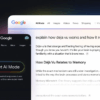
Have You Ever Heard of Clickbait?
How many times have we found news headlines on the web that seem interesting to us, only to discover that we have fallen into the trap of clickbait? Many, too many, the title of this article is (deliberately) an example of this.
But why do they exist and what exactly are clickbait articles? In this article we explain what they are, why they are written and how to recognize them, giving some examples. Find out everything you need to know about clickbait!
What is clickbait?
Clickbait is a term coined by Jay Geiger, an American computer developer and blogger, which alludes to content created with a single purpose: to push the user to click to get to a certain page. The etymology makes it even clearer: it is a combination of the word “click” with the word “bait”. The translation is therefore also the explanation of its meaning, i.e. click bait.
Clickbait articles usually consist of headlines or images that have sensationalist tones and lead to pages with low-quality content or content that does not match what the headlines seem to promise. This type of practice aims to manipulate the user to extract a specific action (the click), offering a poor browsing experience and often causing disappointment for those arriving on the landing page.
In short, the aim is to attract traffic to specific sites or blogs through deception, so that the site in question is very popular. This opens up various commercial opportunities for those who manage it, such as the possibility of inserting advertisements, obviously by charging them.
How to recognize clickbait
First of all, a clickbait title must grab the user's attention. You'll be surprised how common these tricks are! Here are some typical signs:
- words that evoke emotion or surprise: “Scandalous!”, “Crazy thing!”, “Watch the video that moved everyone”;
- titles that say little or nothing about the content of the article: “Meet an old friend. You won't imagine what happens next”; “Juve says no. Ronaldo gets furious”;
- promises of easy earnings or benefits: “How I became a millionaire in a week”, “The secret to losing 5 kg in a day”;
- confidential information and secrets: “The book the church doesn't want you to read”, “The scandal no one can tell”, “The Roswell video that escaped censorship”;
- securities that leverage fear: “5 mistakes that can lead to the failure of your company”, “Surge in Coronavirus infections: here's why”.
The most common distinctive feature of landing pages is, as mentioned, the presence of commercial break, often in the form of banners, or other clickbait titles to "keep the user in the loop" who, once attracted again, will be able to view other advertising or make a purchase. This is obviously the true purpose of clickbait.
Examples of clickbait headlines
Below you will find some examples actually present on the web of clickbait titles that I found while writing this article.
- “Find out how I earned 500 euros in 10 minutes using Facebook.”
- “You'll never believe what this celebrity did to lose weight!”
- “The truth behind Amazon's success that no one ever told you.”
Does clickbait work?
People are curious by nature. The more the promise seems exaggerated, the more the curiosity will grow to receive the reward, which is easily achievable, because just one click is enough. But why are we so easily deceived?
Let's take a trivial example. Browsing we find the title "how I earned 500 euros in 10 minutes using Facebook". Even knowing that the landing page text will almost certainly be disappointing, we are still willing to click. For three reasons:
- However, the benefit appears interesting: "I won't be able to get 500 euros, but maybe 100 will.";
- the time required is very moderate: “I can afford to waste two minutes of time.”;
- the risk is not perceived: “I clicked with the intention of earning money, not spending it.”
Apparently, then, clickbait works. But what happens when we realize the scam?
Clickbait and ethics on the web
We understand that clickbait can generate traffic and sales on a website. We also know that it's easy for this type of content to go viral. But at what price?
When a news site makes systematic use of clickbait headlines, it creates fake news and systematically tries to manipulate the user, the trust of those who surf is lost. Imagine noticing a dealership advertisement promising astronomical discounts on the purchase of a new car. When you arrive at the showroom you discover that all the vehicles are on sale at full price. Not only will you not get any benefits, but you are wasting time and feel like you have been screwed.
When this happens, the credibility of the source tends to be eliminated. Even if the dealership actually decides to offer discounts in the future, you will tend to exclude it from the purchasing options ("there will certainly be another rip-off").
What clickbait teaches us
What we have read leaves us with some lessons that we can learn from: when we want to attract attention, sometimes titles are more important than contents. The choice of a title can influence the diffusion of that content via social media.
However, the systematic use of clickbait leads to a collapse in the bounce rate and has a negative impact on credibility, with the strong possibility of obtaining the opposite effect to the desired one. Furthermore, with a little attention you can identify clickbait titles and avoid wasting time on them.
As for website managers, if you decide to use a clickbait title, start with the content. This means creating a rich and in-depth content and then create a title that sparks curiosity about that topic. This way you won't lose credibility and will be able to benefit from clicks.
Conclusion
Clickbait is a reality of the modern web, but you don't have to be a victim. By knowing the tricks content creators use, you can browse the web in a more critical and informed way. Remember, not all engaging content is clickbait, but being aware will help you distinguish between valuable information and simple click bait.
Want to learn more about how to improve your online presence without resorting to clickbait? Contact us today and find out how we can help you grow ethically and sustainably!








